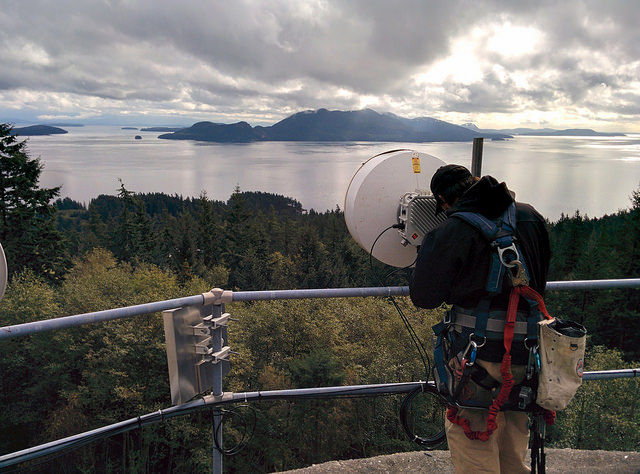In a video published online in September, a social scientist named Alex Spectre made an earnest pitch for his new startup.Clad in the Silicon Valley uniform of open-collar shirt and blazer, Spectre boasted that his company – Philometrics – would revolutionise the way online surveys were done, making it easier for companies to design questionnaires that people would actually respond to on Facebook, Twitter or other sites.
Crucially, he said, the surveys could predict the responses for large groups from a small number of respondents and micro-target ads better.”The reality is working with big data, social media is incredibly difficult,” said Spectre, who more commonly goes by Aleksandr Kogan, which he uses in his role as a Cambridge University researcher.
“You want to work with people who have a lot of experience. You want to connect with people who have been working with these massive data sets.”
Kogan would know. On Friday (March 16), he was suspended by Facebook Inc. for his earlier work mining data on what the New York Times reported was as many as 50 million Facebook users and sharing it with Cambridge Analytica, a political-advertising firm that helped Donald Trump win the 2016 US presidential election.
Facebook caught spying on conversations again
I was in need of wheelbarrows for a company project two weeks ago, so I pulled up the webpage for the Lowe’s hardware store on my work computer and perused their offerings. A day later, just like magic, Facebook presented me with a Facebook ad from Lowe’s featuring the same brand of wheelbarrows I looked at! The social media company made the connection between my work computer and my personal phone, even though I was not logged into Facebook on my work computer when I made the search. Apparently I had left some Facebook cookies behind on my work computer and Lowe’s webpage uses Facebook integrations to read those cookies.
Creepy? Perhaps for some, but at least I can understand how this magic was done. I might not necessarily like Lowe’s sharing my searches with Facebook but I understand how and why it happened. I chalk this up to good, clean, targeted advertising. It’s fair game.
But there’s apparently another, more nefarious kind of targeted advertising done by Facebook, whether or not they care to admit it. A friend had lunch with a colleague yesterday and they were waiting for their meals when his colleague casually mentioned that his car was in need of a new ignition coil. Upon returning to his office, my friend checked Facebook and was astounded to find a Facebook ad for an ignition coil!
What are the odds of this happening by chance? I mean, I know that a recent story on this by Digg has pointed to the Baader-Meinhof phenomenon as a possible explanation. This theory might apply to more common phrases or objects, like cat food, but ignition coils? How often does anyone ever utter the words “ignition coil” in their lifetime? Saying I hear it maybe once every ten years would be generous. It’s pretty damn uncommon phrase.
My friend insists that he never searched for ignition coils, typed it in, or did anything active that would’ve drawn the ad to him. He also was not on any WiFi networks at the restaurant and had no other overt ties to his colleague and their conversation. While it may be possible his colleague Googled it at the restaurant my friend doesn’t think so, and certainly he didn’t use my friend’s phone to do it. The odds against this being coincidence are simply staggering.
I’ve seen the video of the couple who talked about dog food and summoned dog food ads to their Facebook page. That’s interesting to be sure, but I don’t know these people the way I know my friend. I can certainly vouch for my friend’s honesty.
The Facebook app has been banned from my phone since I caught it using the photos on my phone that I didn’t share to send me ads. That was too creepy for me, but it appears that listening in on what people say now feeds the social media giant’s insatiable appetite to know everything about you.
Are you frightened yet?
Russian spy: This is how nerve agent Novichok destroys your mind and body, even if you survive | The Independent
If Sergei and Yulia Skripal survive being poisoned by Novichok nerve agent, they may be left suffering illnesses that ruin their lives – which may be the point of the attack, security experts have warned.
The case of a Russian military scientist accidentally exposed to Novichok appears to show that even surviving the effects of the supertoxic nerve agent is horrific.
Andrei Zheleznyakov was said to have been injected with an antidote almost immediately, but a friend said he still went from being a jovial, creative man to suffering “chronic weakness, toxic hepatitis, epilepsy, severe depression and an inability to concentrate”, before dying five years later.
Soviet Scientist Who Developed Novichok Poison Used on Sergei Skripal: ‘I’m Sorry’
The person who understands the effects of novichoks best is Vil Mirzayanov, a scientist and later head of Foreign Technical Counterintelligence at the State Scientific Research Institute of Organic Chemistry and Technology (GosNIIOKhT) in Moscow in the 1970s and 1980s, which allegedly produced the shadowy class of binary nerve agents known as the “novichoks” (newcomers). And he has a message for Skripal and his daughter: my bad.
“I’d tell him [Skripal] that I’m very sorry that I participated in the development of these weapons,” Mirzayanov told The Daily Beast.
GosNIIOKhT scientists developed the agents under a program codename “Folio” beginning in the 1980s. Mirzayanov spoke out about the covert program as the Soviet Union fell, earning him a prison term at home before he escaped to exile in the United States.
During the Cold War, the idea that a novichok agent would be used in a covert assassination seemed alien to Mirzayanov and his fellow scientists. The weapons, developed in intense secrecy by Soviet scientists, were originally designed for use in bombs and shells on a battlefield rather than a cloak-and-dagger assassination in a suburb in southern England.
“I couldn’t imagine. No one could imagine. It’s outrageous. We were convinced at the time that we were developing these weapons and testing others for the protection of the country and for defense,” Mirzayanov said. “It was not our goal. None of the scientists supposed that it would be used with terrorist goals. It was a military thing. It was a weapon for mass killing.”
Source: Soviet Scientist Who Developed Novichok Poison Used on Sergei Skripal: ‘I’m Sorry’
American General In Syria Confirms US Forces Killed Hundreds Of Russians In Massive Battle – The Drive
Remember that rumor of a Russian attack on U.S. forces in Syria? Apparently it’s more than a rumor.
I’m not sure what Putin was thinking here. Did he think he could get away with it?
A senior U.S. general appears to have confirmed that hundreds of Russians fought – and died – in a major battle against American forces and their local counterparts in Syria. More importantly, U.S. Army Brigadier General Jonathan Braga, director of operations for the main U.S. military task force in charge of operations in Iraq and Syria, said he feared the situation could have escalated into an all-out conflict with Russia, something we at The War Zone have warned repeatedly is becoming a worryingly realistic possibility.
Braga gave the surprisingly candid account of what had happened to NBC’s Richard Engel, who traveled with the general to visit the exact site of the incident in Syria and to see what the U.S. military was doing to improve its defensive posture.
Ex-Russian Chemical Weapons Specialist: Moscow Was Sure No One Would Find Poison
Vil Mirzayanov is a Russian emigre to the U.S. and chemical weapons specialist who helped develop the poison believed to have been used in the attack in Britain on Sergei Skripal, a former colonel in the GRU, Russia’s military intelligence, and his daughter Yulia.
Mirzayanov spoke with VOA’s Russian service.
Q: You were involved in the development of unique Soviet chemical toxic substances of nerve agent, “Substance 33,” “A-232” and “?-234,” known today as “Novichok” (Newcomer). At the same time, you claim that no other country in the world except Russia has ever had such weapons. How were British investigators able to establish what kind of substance was used to poison Sergei Skripal?
Mirzayanov: To establish which chemical agent was used in this case, you need to have access to a powerful high-resolution mass spectrometer, in the library of which are the spectra of all known compounds. The sample taken is compared with those already known, and the computer indicates a spectrum with a 96 percent probability. That is, there can be no error here.
Source: Ex-Russian Chemical Weapons Specialist: Moscow Was Sure No One Would Find Poison
Ominous biosecurity trends under Putin
Regimes of all types throughout history have sought to harness science for war. As a result, otherwise beneficial technology can become ‘dual-use’. Biological weapons are among the starker examples: research meant to save lives is used to take them. Now, in the run up to elections in Russia, and with concerns mounting about the nation’s role globally, biological-weapons specialists Raymond Zilinskas and Philippe Mauger deliver Biosecurity in Putin’s Russia.
Bioweapons research in Russia and its environs extends back as far as 1928. It took off in the 1970s, for example through the infamous clandestine Biopreparat network. There, the Soviets weaponized pathogens including the smallpox and Marburg viruses and the anthrax bacterium Bacillus anthracis. Zilinskas and Mauger focus on the years 2012–16, when political tensions between Russia and the West intensified markedly. Concerned by apparent shifts in Russia’s pronouncements and actions regarding dual-use activities related to biosecurity, Zilinskas and Mauger write that they wish to “move the discussion over Russian compliance concerns to the public sphere”, where an evaluation based on evidence becomes possible.
How a group of neighbors created their own Internet service | Ars Technica
When you live somewhere with slow and unreliable Internet access, it usually seems like there’s nothing to do but complain. And that’s exactly what residents of Orcas Island, one of the San Juan Islands in Washington state, were doing in late 2013. Faced with CenturyLink service that was slow and outage-prone, residents gathered at a community potluck and lamented their current connectivity.
“Everyone was asking, ‘what can we do?’” resident Chris Brems recalls. “Then [Chris] Sutton stands up and says, ‘Well, we can do it ourselves.’”
Doe Bay is a rural environment. It’s a place where people judge others by “what you can do,” according to Brems. The area’s residents, many farmers or ranchers, are largely accustomed to doing things for themselves. Sutton’s idea struck a chord. “A bunch of us finally just got fed up with waiting for CenturyLink or anybody else to come to our rescue,” Sutton told Ars.Around that time, CenturyLink service went out for 10 days, a problem caused by a severed underwater fiber cable. Outages lasting a day or two were also common, Sutton said.Faced with a local ISP that couldn’t provide modern broadband, Orcas Island residents designed their own network and built it themselves. The nonprofit Doe Bay Internet Users Association (DBIUA), founded by Sutton, Brems, and a few friends, now provide Internet service to a portion of the island. It’s a wireless network with radios installed on trees and houses in the Doe Bay portion of Orcas Island. Those radios get signals from radios on top of a water tower, which in turn receive a signal from a microwave tower across the water in Mount Vernon, Washington.
Source: How a group of neighbors created their own Internet service | Ars Technica
Amazon built its hyper efficient warehouses by embracing chaos — Quartz
Good look at how Amazon takes advantage of randomness in its warehouses.
Amazon has completely redefined warehouse efficiency and customer convenience. Through its Prime membership, it has promised tens of millions of customers free two-day shipping on more than 100 million products, and, last year, it shipped 5 billion items to them. “That was the major innovation,” says Daniel Theobald, who cofounded a warehouse robotics company called Vecna in 1998 and counts major retailers and logistics companies as clients. “As soon as people realized, you can order something and get it tomorrow, that turned the industry upside down.”
The core of this disruptive efficiency, though, is not Amazon’s automated shelf-moving warehouse robots, which is the innovation that gets the most attention. And it isn’t, on its surface, something that you would associate with a well-oiled machine. It’s not even a breakthrough technology. In fact, some version of it was already in place when Alperson worked in Amazon’s early warehouses.
What makes Amazon’s warehouse work is the way they organize inventory: with complete randomness.
Source: Amazon built its hyper efficient warehouses by embracing chaos — Quartz
U.S. Has Been Secretly Watching Russia’s Nuclear-Powered Cruise Missiles Crash and Burn – The Drive
Good luck with that, Pootie-Poot.
Russia’s President Vladimir Putin publicly announced the as yet unnamed missile in an annual speech on March 1, 2018. The Kremlin says it successfully tested one of the weapons near the end of 2017 and released video footage claiming to show the launch and it in flight. So far, Russian authorities have not released any other significant details about the weapon’s configuration or capabilities, though Putin implied that the final design would be broadly similar in size and shape to the existing, conventionally-powered Kh-101 cruise missile.
At the most basic conceptual level, the weapon could conceivably reach supersonic speeds, fly at very low altitudes, and have effectively unlimited range thanks to its nuclear powerplant, allowing it to hit targets anywhere in the world with little warning and dodge anti-missile defenses.
But shortly after Putin’s address, CNN, in a story citing an anonymous U.S. government official, cast doubt on the possibility that this weapon was anywhere near operational. That individual added that the “United States had observed a small number of Russian tests of its nuclear-powered cruise missile and seen them all crash.” Fox News said its own sources indicated the same thing, that the weapon was in the research and development phase and that at least one had crashed during testing in the arctic.
Source: U.S. Has Been Secretly Watching Russia’s Nuclear-Powered Cruise Missiles Crash and Burn – The Drive










